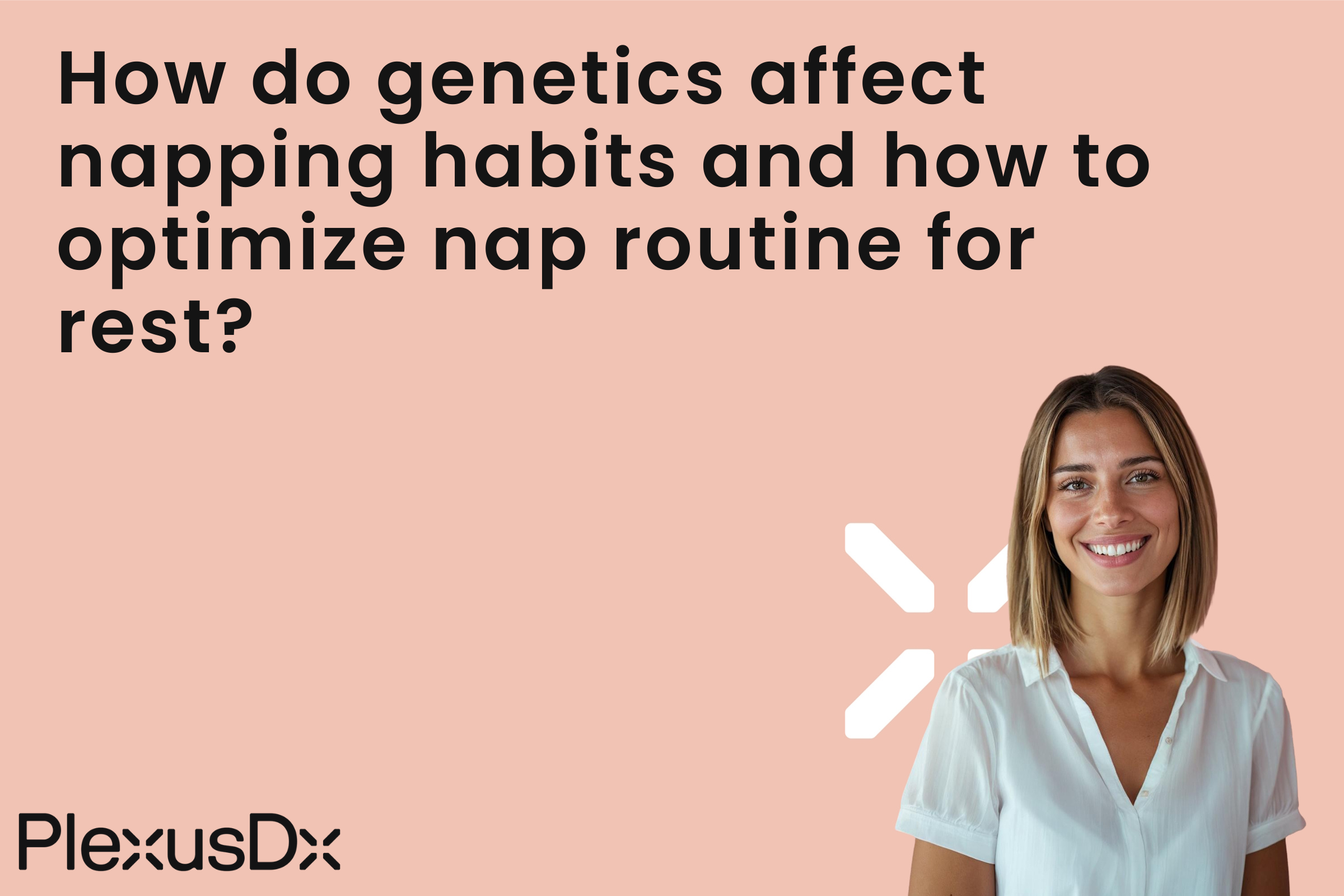Napping: The Genetic Influence on Your Daily Rest
Have you noticed that a quick nap helps some people recharge completely but leaves others feeling more fatigued after waking up? The answer may lie in your genes. This blog post examines how genetic factors affect napping habits and discusses ways these insights can enhance your daily restfulness.
The widespread habit of taking naps produces different outcomes for energy levels and cognition while impacting overall health. Genetic predispositions prevent some people from enjoying the restorative benefits of short naps which many others experience. The way our bodies react to naps depends heavily on genetics which affects nap duration and daytime rest quality.
Genetic Trait
A nap represents a brief day-time rest period which usually encompasses stage two light sleep within the sleep cycle. Genetic factors explain over 60% of the variations in how people nap. The genetic regulation of wakefulness-promoting nerve signals determines how productive short naps can be for individuals.
Napping provides multiple benefits such as decreasing fatigue levels while simultaneously improving cognitive performance and mood and increasing alertness. Individuals exhibit different napping patterns due to genetic predispositions combined with various external influences. A person's need for napping arises from multiple factors including their age and health status along with sleep quality and daily schedules.
Underlying health problems or poor sleep quality at night can lead some people to need additional daytime rest. The need for naps can rise when people wake up early and experience extreme daytime sleepiness.
Practical Tips for Effective Napping
- Do not nap in the late afternoon if you want to avoid disrupting your nighttime sleep.
- Select a silent and dark space with as few disturbances as possible to establish an ideal nap setting.
- Restrict your naps to approximately 20 minutes to prevent deep sleep stages from causing sleep inertia.
- Take time to wake up completely after a nap before you start your daily tasks again.
The genetic basis of napping behavior is supported by moderate-quality evidence but further research is required to deepen our understanding of genetic impacts on sleep patterns. Advancements in genetic research show promise for developing customized methods to enhance rest and recovery. The genetic makeup of individuals determines their napping patterns and how they respond to daytime sleep.
Understanding genetic factors that influence napping behavior allows people to optimize their nap schedules for maximum positive outcomes while reducing negative effects. Anyone who suffers from constant daytime drowsiness or who notices abnormal shifts in their napping behavior should seek medical advice to investigate possible health problems.
Use PlexusDx Precision Health & Wellness tests to learn about your genetic traits that affect fitness and recovery outcomes. You can find out how genetic testing can help you make educated health choices by checking out PlexusDx.com, Amazon or Walmart. The initial action towards enhancing your daily rest patterns and attaining better health begins with understanding your genetic tendencies. Use genetic insights to take control of your health now.

Share:
Effects of FGF21 gene variants on diet preferences and metabolism?
Effects of FGF21 gene variants on diet preferences and metabolism?